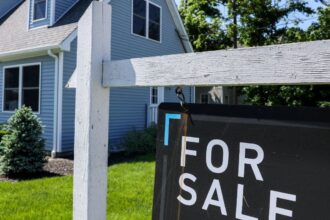The emergency provisions in the CARES Act gave the Federal Bureau of Prisons (BOP) the ability to place mostly minimum security prisoners on home confinement if they had underlying health conditions. For many prisoners, it meant spending years on home confinement instead of a prison setting. For the BOP it provided a glimpse of how it could effectively monitor many inmates in a setting other than a prison. However, that program is set to end in mid-May 2023.
The results of CARES Act home confinement illustrate what a successful program it was for the BOP. While the BOP was slow to act in the early months of the COVID-19 pandemic, it eventually moved nearly 15,000 inmates to home confinement under the CARES Act. This not only moved vulnerable inmates out of the communal settings of prison, it helped reduce the population of inmates in the prison to achieve some level of social distancing. Few of those inmates on CARES Act violated the terms which sent them back to prison and fewer still committed another crime. The criteria to be on home confinement went well beyond just medical conditions as most all were minimum security inmates whose risk of recidivism and violence was minimal.
According to information in the Federal Register’s Final Rule on CARES Act, supervision of inmates in home confinement is less costly for the BOP than inmates in secure prisons. In Fiscal Year 2019, the cost of incarceration for a Federal inmate in a Federal facility was $107.85 per day; in FY 2020, it was $120.59 per day. In contrast, according to the BOP, an inmate in home confinement costs an average of $55.26 per day—less than half the cost of an inmate in secure custody in FY 2020. Home confinement, which has been used for decades for a portion of most all federal inmates, comes with strict conditions of confinement. Curfews, an approved work assignment, ankle monitors, random drug and alcohols tests and restricted movements outside the home are just a few of the conditions placed on the prisoner. Failure means a return to institutional living.
The Federal Register also noted that thousands of prisoners are successfully living on home confinement under the CARES Act and that it will be left to the BOP to decide whether or not they should be returned to prison after the end of CARES Act. The Trump administration Office of Legal Counsel (OLC) stated that all inmates must return to prison after CARES Act but that legal interpretation was modified by the Biden administrations OLC to leave the discretion to the BOP. Today, BOP Director Colette Peters issued a statement that should provide some comfort to those inmates on home confinement and their family members.
Director Peters provided a memorandum to all Residential Reentry Managers with information consistent with the Department Of Justice final rule. She instructed “that any individual placed on home confinement under the CARES Act will remain on home confinement under the CARES Act for the remainder of their sentence, provided that they are compliant with the rules and regulations of community placement.”
Read the full article here










